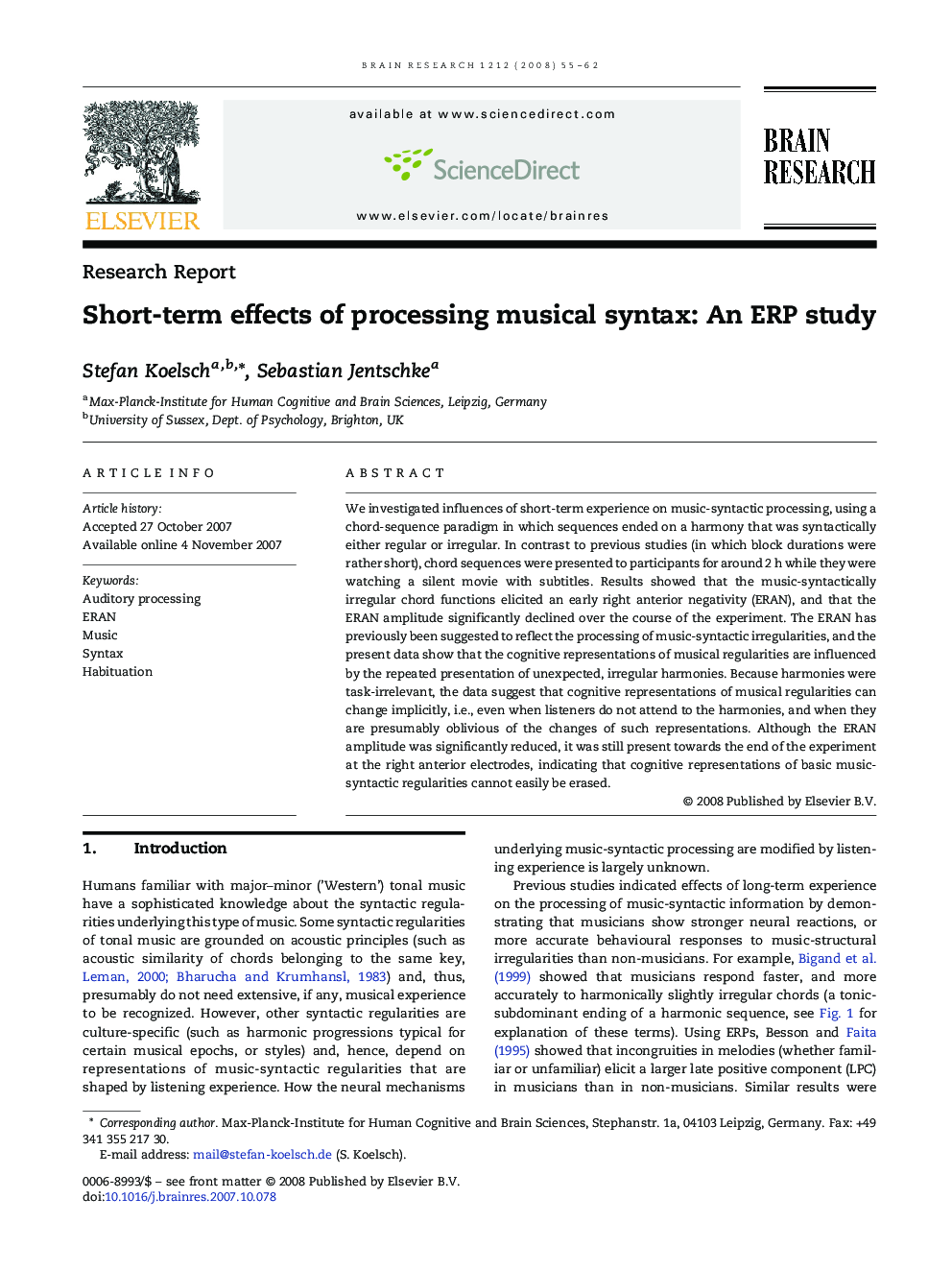| Article ID | Journal | Published Year | Pages | File Type |
|---|---|---|---|---|
| 4329638 | Brain Research | 2008 | 8 Pages |
We investigated influences of short-term experience on music-syntactic processing, using a chord-sequence paradigm in which sequences ended on a harmony that was syntactically either regular or irregular. In contrast to previous studies (in which block durations were rather short), chord sequences were presented to participants for around 2 h while they were watching a silent movie with subtitles. Results showed that the music-syntactically irregular chord functions elicited an early right anterior negativity (ERAN), and that the ERAN amplitude significantly declined over the course of the experiment. The ERAN has previously been suggested to reflect the processing of music-syntactic irregularities, and the present data show that the cognitive representations of musical regularities are influenced by the repeated presentation of unexpected, irregular harmonies. Because harmonies were task-irrelevant, the data suggest that cognitive representations of musical regularities can change implicitly, i.e., even when listeners do not attend to the harmonies, and when they are presumably oblivious of the changes of such representations. Although the ERAN amplitude was significantly reduced, it was still present towards the end of the experiment at the right anterior electrodes, indicating that cognitive representations of basic music-syntactic regularities cannot easily be erased.
